In this BIA Strategic Brief, the first of many we’ll be doing monthly this year, I’d like to share some perspective into two ad platforms – the rising tiger of digital and the cash cow of direct mail (borrowing these terms from the Boston Consulting Group’s work with its growth share matrix).
Digital and direct mail ad platforms, while grounded in wholly different technologies, legacies, and use in media mix models, are similar in their abilities to target consumers and show accountability. The two ad platforms also compete and complement traditional media ad platforms. Both competitive and complementary strategies make sense for traditional media sellers to pursue by developing an overarching accountability strategy. With such a strategy, the entire ad market becomes accessible, not just competing with sellers in your media channel.
Let’s look at a case study.
Competitive Strategy Case Study
We heard a fascinating case study from a major market TV station sales leader who converted a client to become 100 percent invested in TV advertising on his station. This is a bit unusual in that the client previously had been 100 percent positioned in direct mail. How did this competitive sales initiative work so well?
The local TV offered a compelling proposition: let me show you TV works. He offered a plan where the client did not spend one dollar more in advertising but instead reallocated some spend away from direct mail into his TV station.
Together they determined accountability metrics such as web site traffic, search traffic, in-bound calls, foot traffic. These accountability metrics are difficult to establish in a clear causal chain for TV, but this made for a good before/after test to show lift results.
What happened? It worked.
Accountability metrics soared and the client was impressed, surprised and delighted. She was then encouraged to reallocate 100 percent of her media spend to this local TV station. The results? Even greater lift. TV works.
While this is a powerful case study, frankly there are not many advertisers willing to put 100 percent of their media budget into a single ad channel. Nor should there be.
Media Mix Modeling and Multitouch Attribution
While this is a powerful case study, frankly there are not many advertisers willing to put 100 percent of their media budget into a single ad channel.
Media mix modeling and optimization research and experience teach us that campaign strategies that are data-driven to allocate and optimize media spend across ad platforms, leveraging relevant creative, and managing multitouch attribution throughout the consumer purchase journey deliver far superior overall results for the advertiser.
The models, data, tech, complexity of these systems are becoming better all the time although it’s not cheap. These tools are the basis of an accountability strategy that will create sustainable value for your clients. Even “good enough” but imperfect solutions can put media sellers using accountability strategies miles ahead of their competitors.
Complementary Strategy
This brings us to the complementary sales approach that fully embodies the accountability strategy. Media sellers want to and should compete for share of wallet both in their peer group but also across the range of ad platforms available to local ad buyers.
Many traditional media sellers carry in their bag not only their primary offers (e.g., local TV, MVPD, OTT, ad inventory) but also complementary offers (e.g., paid search, social, listings, reputation management, web assets, mobile apps, etc.). Some of these (web and mobile apps) may be owned-and-operated assets, others (particularly search, social) may be provided through white label or branded partnerships.
Effective accountability strategies start here. Media sellers will certainly be proud of their legacy platforms but must recognize when it makes sense to compete and when it makes sense to complete. Becoming a true marketing partner with your clients requires an open mind, expertise in different platforms and a willingness to promise…and then deliver results.
Our BIA ADVantage local market intelligence platform can be the foundation of your initiative to develop appropriate accountability strategies for your clients. The service positions you to become a thought leader capable of providing informed insights and recommendations to your clients. Your clients will appreciate it and come back to you for more business. Contact us to schedule an online review of the dashboard.

